7 Basic Recycling Rules and Tips, No Matter Where You Live
Published Dec. 22 2021, 11:56 a.m. ET
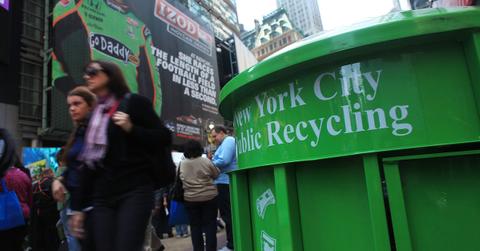
Is it even worth learning basic recycling rules and tips? The more you learn about the recycling system, the more discouraged you may feel about participating in it. The amount of recyclable items that actually make it to recycling plants and get recycled is lower than it should be — namely for plastics, of which only an estimated 9 percent actually get recycled.
While the corporations who produce sickening amounts of plastic and other packaging should be the ones responsible for repairing the recycling crisis, individuals still do have the power to help increase recycling rates. When we recycle improperly, we can contaminate an entire batch of recycling, and leave it destined for the landfill.
So yes, it’s still worth familiarizing yourself with the recycling rules and tips that apply in most U.S. cities. — because when it comes to recycling, knowledge is power. The following tips will help ensure that you are recycling properly, and increase the chances of your recyclables actually being recycled. And for anything you aren’t 100 percent sure about, always check your municipality’s website.
Recycling should be clean, empty, and dry.
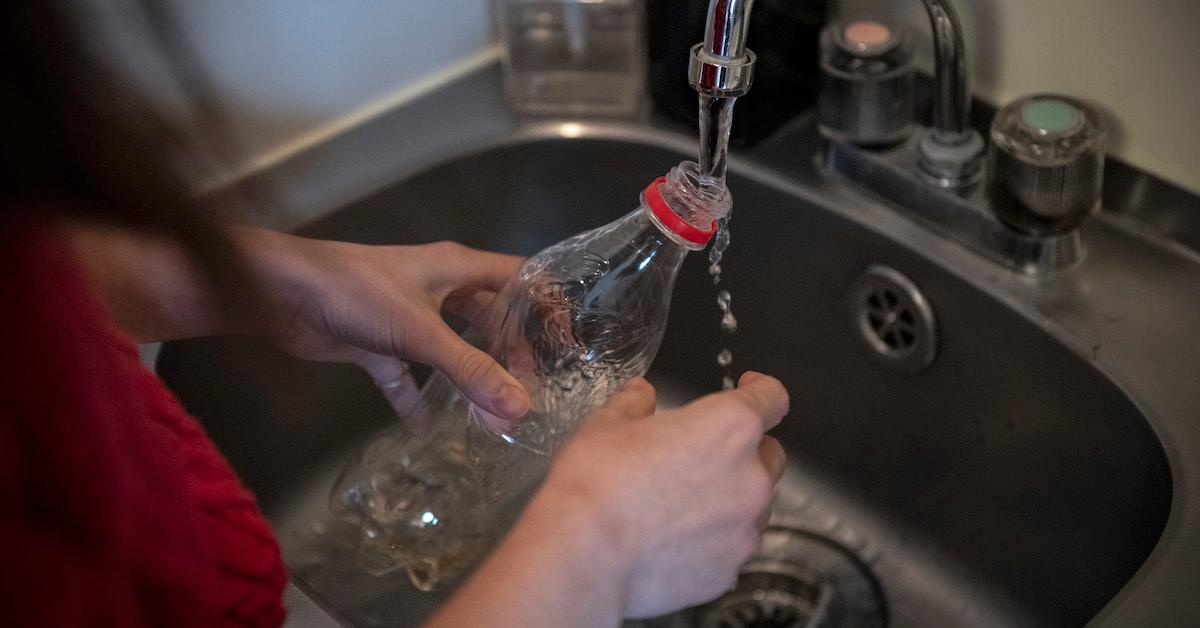
All of your recyclable bottles, cans, and containers should be emptied out, cleaned, and left to dry before you toss them in your recycling bin. So that salsa jar that still has some tomato-y remnants at the bottom, and that beer can that’s sticky with last night’s fun times? Those really shouldn’t go straight into the recycling bin.
Think of it as, you don’t want to contaminate the recycling batch by including anything that is not recyclable — salsa and beer is not recyclable, so they should be cleaned out before tossing. Personally, I treat all empty jars, bottles, etc. as dirty dishes. I just give them a quick wash and then let them dry in the drying rack before putting them in my recycling bin.
Sort and separate your recyclables properly.
Every municipality has different rules when it comes separating recyclables — so make sure to check your city or town’s website for the right guidelines. Many areas have commingled aka single-stream recycling, which means you can mix glass, plastic, metal, and paper together; other areas have commingled recycling, except paper must be separated; and some locations require everything to be separated. Not following these guidelines will result in contamination.
Never recycle these items curbside.
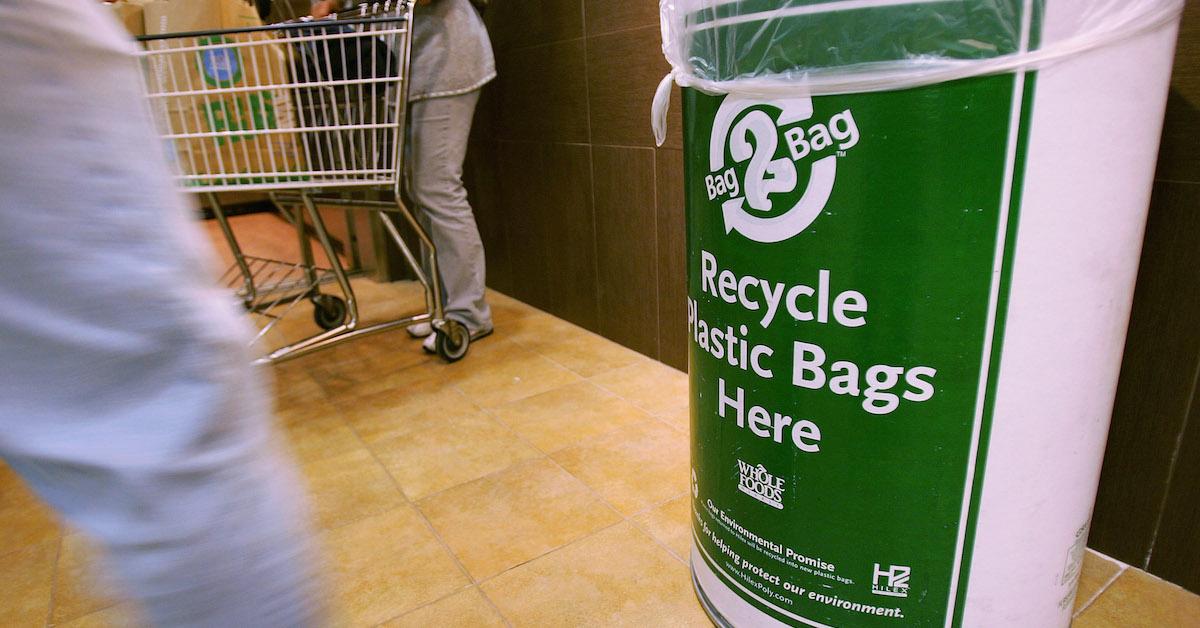
Familiarize yourself with what items cannot be recycled curbside. In almost all cases, that includes:
- Paper towels, tissues and toilet paper, as the fibers are too short; instead, these can usually be composted.
- Plastic bags, as these can get tangled up in recycling equipment, and should instead be dropped off for plastic film recycling.
- Polystyrene (often mistakenly referred to as the brand name Styrofoam) is usually only recyclable at occasional drop-off events.
- Items made with mixed materials, such as paper coffee cups, which are almost always lined with plastic, cannot usually be recycled. However, milk and juice cartons are usually recyclable curbside.
This is another good thing to check on your town’s website — many areas don’t have the capacity to recycle small items, while some places are actually not able to recycle glass. Again, you don’t want to contaminate your recycling by putting in forbidden items.
Don’t “wishcycle.”
Wishcycling is the act of tossing items in the blue bin, even if you aren’t sure if they are actually recyclable. Unfortunately, this is another thing that results in contamination. If you aren’t sure about whether something is recyclable, check your city’s website. If you can’t find an answer, unfortunately, you may have to throw it in the trash.
Learn your local recycling rules.
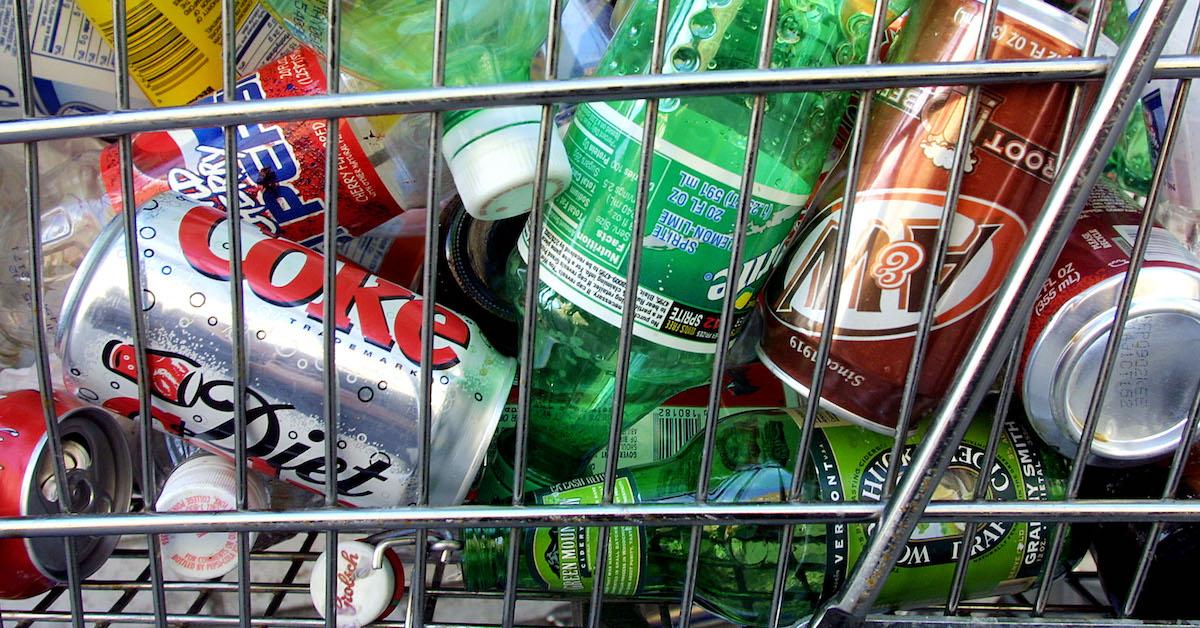
We know, studying is no fun — but internalizing your city’s recycling rules will help make you an expert local recycler. One of the most important rules to learn is what number plastics can be recycled near you.
You’ll then be able to answer any questions your neighbors, family, roommates, or friends have about recycling locally, which will help more items actually get recycled. You could even type up and print out a handy guide to what can and cannot be recycled in your town, and give copies out to your pals.
Use your resources — there are a few recycling websites and apps that can help you.
In addition to your municipality’s website, check to see if your town is listed on Recycle Coach, a fun and educational app that catalogues what is recyclable in different communities. We’re also big fans of the website Earth911, which lets you look up how to locally recycle anything and everything, from crayons and paint to batteries and cookware.
If you have a local recycling center, visit it.
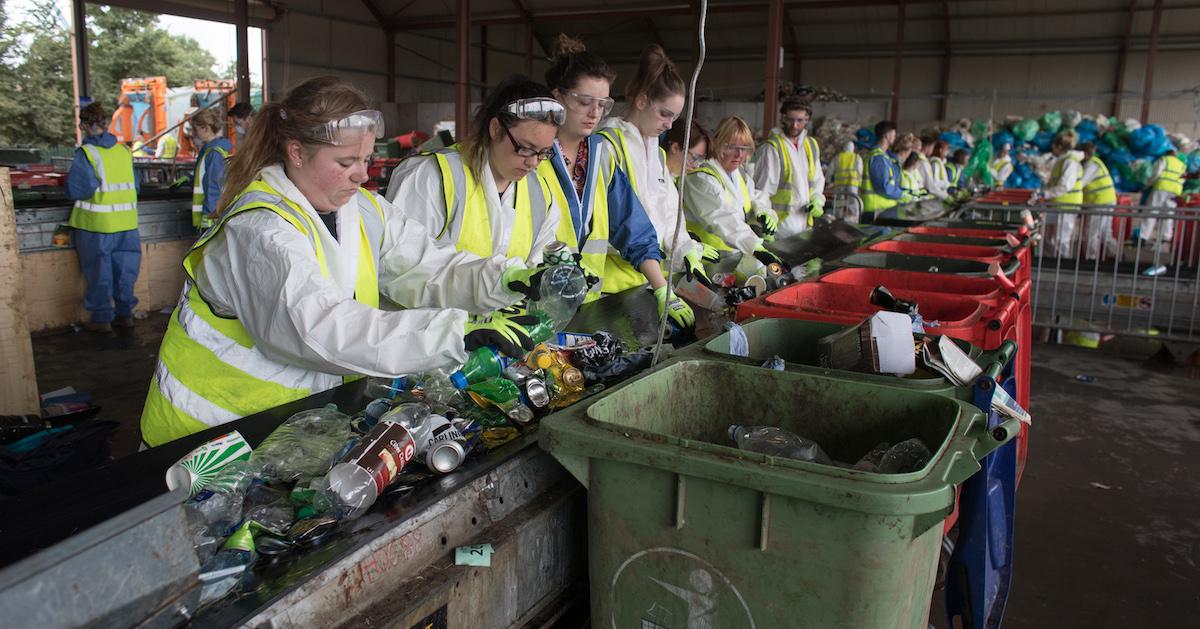
If you’re a total recycling nerd like I am, I highly recommend visiting your local recycling center. There, you may be able to take a tour, where you’ll see how the recycling process works. It will also teach you about what items are and are not recyclable in your city.
And, if you really want to take your recycling to the next level, you may consider bringing all your recyclables to the center every few weeks, instead of leaving them at your curb. Bringing them to the center directly makes it much more likely that they’ll actually get recycled.